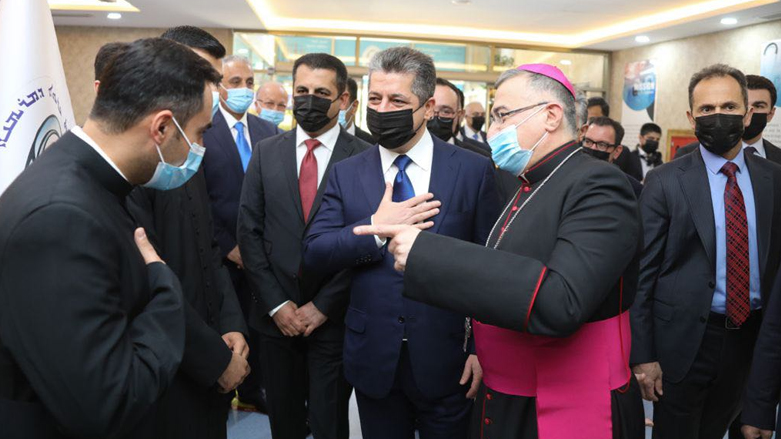Annual USCIRF report welcomes KRG designation of Ankawa as new district

ERBIL (Kurdistan 24) – The new annual report of the official US Commission on International Religious Freedom (USCIRF) published on Monday welcomed the decision by Kurdistan Region Prime Minister Masrour Barzani last October to designate the Christian-majority suburb of Ankawa a new district in Erbil province.
"In 2021, religious freedom conditions in Iraq improved slightly but remained concerning. Both the Iraqi Federal Government (IFG) and the Kurdistan Regional Government (KRG) took several positive steps," the report said.
The 2022 USCIRF Annual Report is now available. https://t.co/8hsLi6REOC
— USCIRF (@USCIRF) April 25, 2022
"In October, KRG Prime Minister Masrour Barzani declared Ankawa, the Christian suburb of Erbil, a district, giving its residents more authority in their local affairs," the report said.
Read More: Kurdistan's Ankawa will be biggest district of Christians in Middle East, says PM Masrour Barzani
Located to the north of Erbil city, Ankawa is home to a large Chaldean, Assyrian, and Syriac population. Ninety percent of its residents are Christians, with the other ten percent Muslim.
Positive conditions for religious freedom in the Kurdistan Region
During a press conference on the report, the Chair of the USCIRF, Nadine Maenza, commented on religious freedom in the Kurdistan Region.
"In the Kurdistan Region, we have seen positive conditions for religious freedom compared to the rest of the country," she said. "In the rest of Iraq, you are seeing militias control the Nineveh plains and commit atrocities against anyone who disagrees with their control of the land that they have."
"And so we are encouraged with the religious freedom conditions across Kurdistan (Region)," she added. "We encourage them to continue to allow religious minorities to be a part of the economy, be a part of the government, and continue to work to include all religious minorities."
The Sinjar agreement
Moreover, the report also noted that the UN-supported October 2020 Sinjar agreement between Iraq and the KRG remains unimplemented.
Read More: KRG and Baghdad reach administrative, security agreement on Sinjar
The agreement's goal was to restore and normalize the situation in Shingal (Sinjar), where competing armed groups are active.
"In fact, there was no meaningful implementation of the agreement by any of the signatories throughout 2021; for example, the two parties failed to appoint an independent mayor or deport militia groups from Sinjar, both of which are terms mandated by the accord," the report noted.
It added that "this failure has directly impeded the ability of Yazidis (Yezidis) to return to their Sinjar homeland."
Moreover, the USCIRF report said that the passage of the Yezidi Survivors Law in May last year "represented crucial (Iraqi) governmental recognition of the particularly heinous crimes the community suffered under ISIS rule."
Read More: Civil society organizations warn Yezidi Survivors Law needs more financial support
"However, this law had not been implemented by the end of the reporting period," it said.
It also added that "the lack of a lasting solution for Yazidi (Yezidi) children born as a result of ISIS's rampant use of sexual violence remains another challenge for the community."
